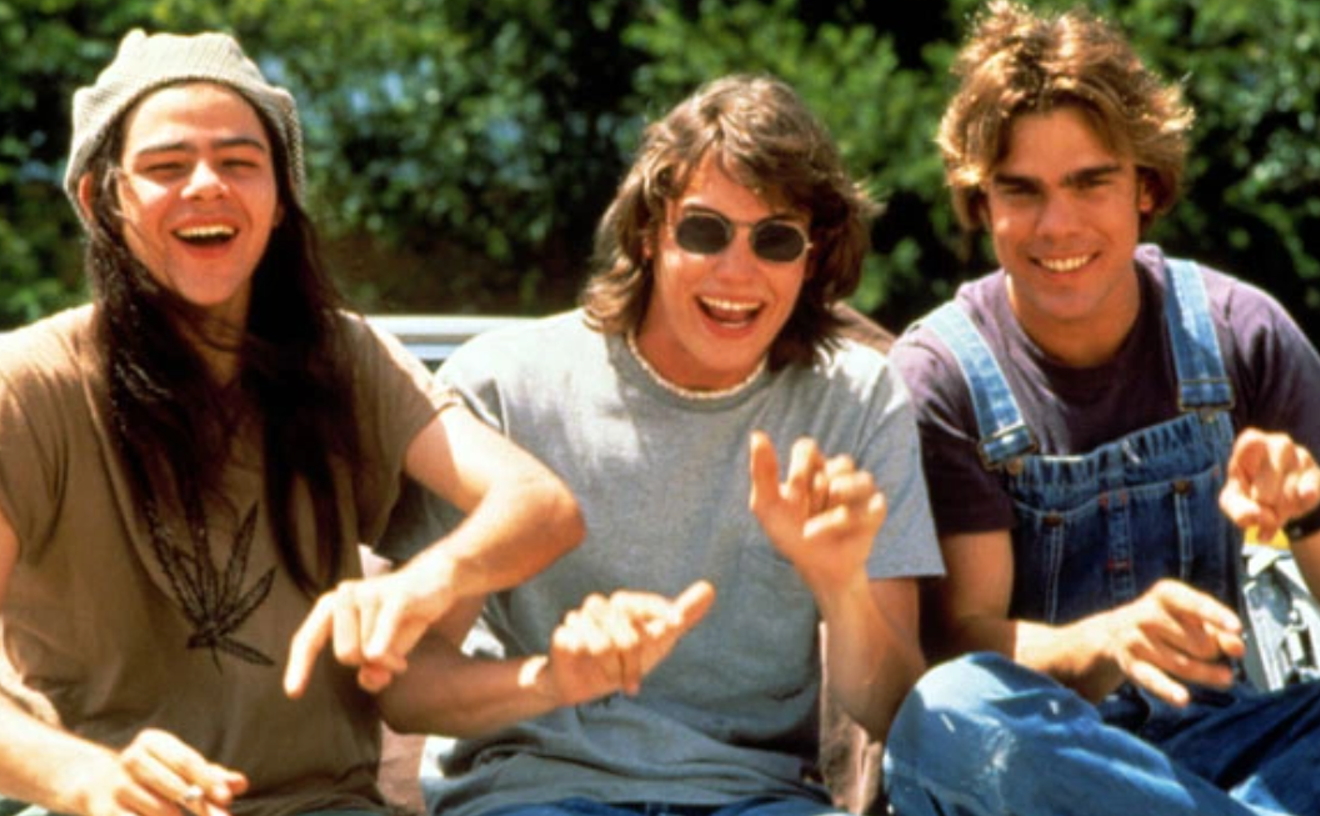Take Me Out is set in the world of baseball, where African-American superstar player Darren Lemming sets the story in motion by announcing that he's gay. The resulting offstage furor makes it to the stage as an investigation into racial prejudice, sexual politics, and the way we build our idols, only to tear them down. The show's Nearly Naked Theatre production nearly meets the high standards of this dependable company, thanks to solid, efficient staging by director Damon Dering and in spite of a rather wooden performance by Jamie Cotton in the lead.
Joseph Kremer does better as Kippy, the narrator and world's most intellectual pro baseballer, although I found my attention wandering (usually to David Weiss' efficiently symmetrical set design) during the often-bland speeches Greenberg has written for him. Dion Johnson gives the showiest performance, one that proves yet again that this fine actor can play anything from giants to children. With the help of some hair extensions and a perpetual scowl, he creates a full-blooded character out of an unsympathetic hillbilly who "just wants to throw."
The real surprise here is in Ron May's reading of Mason Marzac, the superstar's accountant -- not because May isn't a competent actor, but because his character arrives late in the story, then resides on its periphery. May provides the story's comic relief, but does so with such restraint that he's never just a clown; he brings real warmth to what, in lesser hands, might have been merely a court jester, another goofball fan mooning over a sports stud.
The rest of the largish cast mostly fills out baseball uniforms and provides dressing (or undressing, actually) for the show's staging gimmick. It's a gimmick that hangs -- literally and figuratively -- over the audience like that chandelier in The Phantom of the Opera, and one that this time makes Nearly Naked's trademark onstage nudity something less than gratuitous. The play's notorious locker room shower scenes are almost certainly why this production's first weekend shows were entirely sold out, and why the packed house seemed to be so full of theatergoers who were more interested in the players' packages than in what the playwright had to say about the human condition. Which ultimately wasn't much more than we've all heard before, however nicely it was presented.










